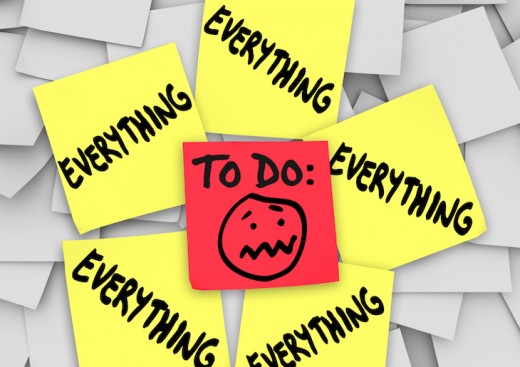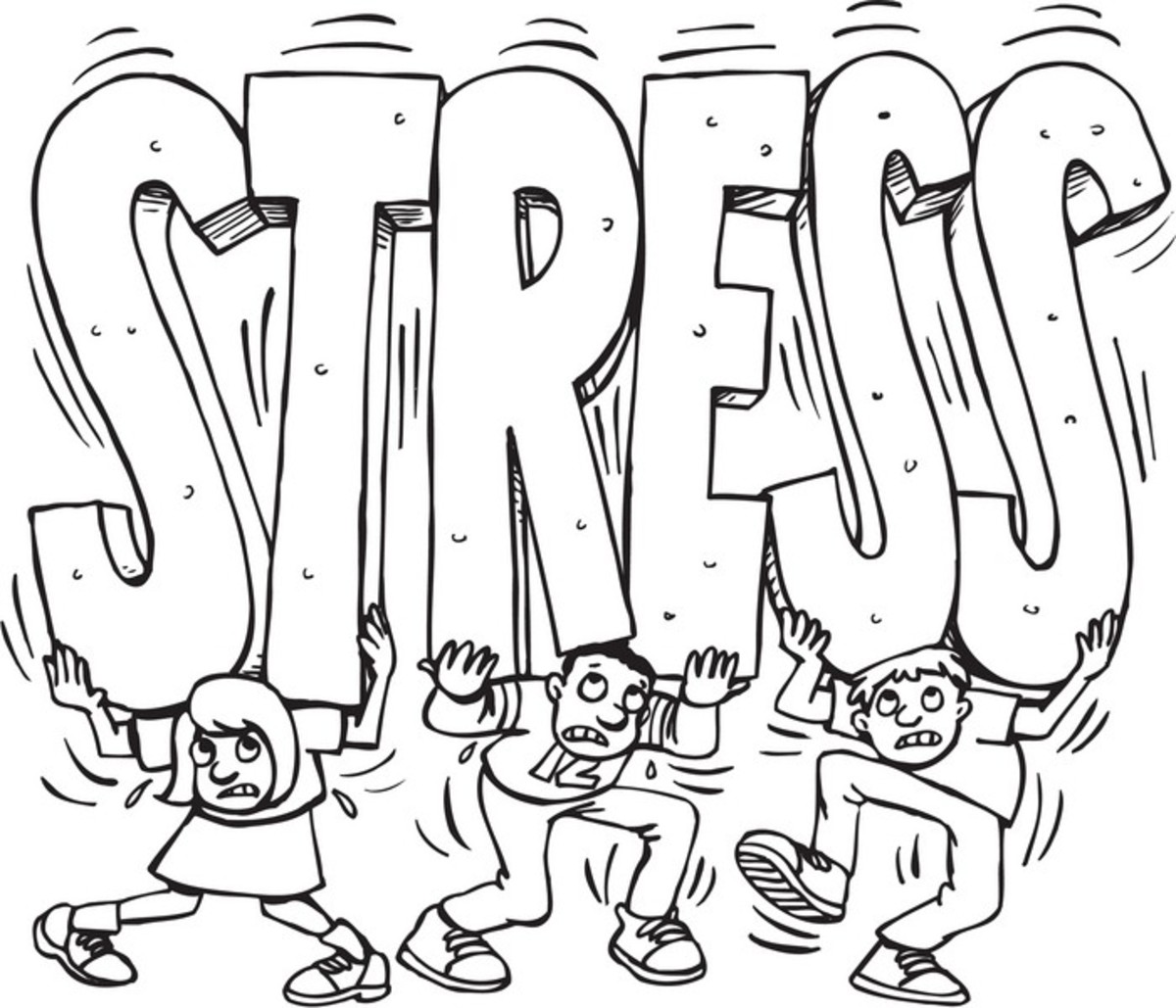Stress and Community Management: A Toxic Combination

Has this happened to you? You get home from another longer-than-it-should-be day at the association. No matter how hard you try, you can’t get work out of your mind. When you go to sleep, it is still there . That is, when you actually can sleep. Two to three hours a night is your average. Do you spend the day constantly peaking at the time, willing it to pass faster? Do you have a sudden sense of dread on Sunday night knowing you have to return to work in the morning? Have you ever referred to leaving at the end of the workday as “escaping?”
This is the beginnings of what is known as post-traumatic stress and/or its indirect cousin vicarious stress. Post-traumatic stress is commonly found in solders, victims of violent crime, natural disasters or terrorism and traffic accident survivors. Vicarious Trauma is primary found in their councilors. So, as a Community Association Manager you are probably asking yourself, what do I have to do with any of that? More than you might think.
Types & Definitions of Stress
Before we get to PTS or vicarious stress, we must look at how we get there. And that is through cumulative stress. As the name suggests, it results from an accumulation of a number of factors such as heavy workload, poor communications, and the frustration of not being able to meet the needs of the recipients. In turn, the person feels powerless, has a lack of basic comfort and an inability to rest or relax.
Most people are familiar with post-traumatic stress’s more serious manifestation, post-traumatic stress disorder, or PTSD. These are also the symptoms of what is known as vicarious trauma. The difference in the two lies in the extreme of the former’s nature. The Mayo Clinic defines PTSD as “a mental health condition that's triggered by a terrifying event — either experiencing it or witnessing it.” Whereas vicarious trauma is “a transformation in the self of a trauma worker or helper that results from empathic engagement with traumatized clients and their reports of traumatic experiences.” Where Post-traumatic stress is a response to a direct threat, vicarious stress is an indirect one, originating in the day in, day out exposure to other’s problems.
If the signs of stress have been ignored or not recognize for too long, then we enter the state of burnout. The Joyful Heart Foundation states this “can occur when the demands placed on an individual exceeds available resources. Burnout is related to stressful working conditions that leave the worker with feelings of frustration and powerlessness.” This can be brought about when we are overwhelmed and under supported in both the job and in recognition of what the stress is doing.

So, what is causing all this stress?
So, now that we know the different types of stress, how do we get to those stages? As a Community Association Manager, you are by the very definition of your job a multi-tasker. You deal with a variety of people on a daily basis: employees, vendors, owners, residents, potential buyers. You are most likely the first step in your association’s collections and document enforcement. There are the board meetings to attend, reports to prepare, board members to keep up to date, newsletters to prepare, and finances to manage. You are the one that everyone brings their complaints to, whether it’s about maintenance, administration or their own personal grievances. Then on top of all of this, to maintain your license you need to attend CEU courses; so you need to schedule some time for that.
Then there are the threats outside your control. An informal survey conducted by Presentation Dynamics during a CAM course on coping with stress came up with some startling stats. The percentage of those who answered yes for the question “Have you ever witnessed the following in your career?”
- 85% for Death
- 35% for Suicide
- 95% for Heart Attack
- 85% for Hurricane/Tornado
- 55% for Fire
- 66% for Flood
When it came to having to make call to emergency services annually, paramedics were far and away the most called, approximately 39 times. With the police at 9 times and fires department 8 times, it brings the total of 56 times a year, or on average once every week.
The most astounding response was when the participants were asked if they had ever been physically threatened on the job, 91% answered in the affirmative. In the words of Axl Rose, welcome to the jungle.
Signs & Symptoms
The symptoms of stress can manifest themselves in a number of physical, mental, emotional, behavioral, relational, and spiritual ways. Warning signs (courtesy of The Joyful Heart Foundation) to look out for are:
- Constantly feeling tired, even after resting
- Physical tension in the body when unnecessary, i.e., sitting at your desk
- Physical pain throughout the day (headaches, back pain and wrist pain) that you “push through”
- Difficulty falling asleep, or excessive sleeping
- Getting ill when you are able to rest
- Hypersensitivity to emotionally charged material
- Feeling disconnected from your emotions and/or your body
- Feeling like all you do is never enough
- Feeling helpless or hopeless about the future
- Increased levels of anger, irritability, resentment or cynicism
- Difficulty in seeing multiple perspectives or new solutions
- Jumping to conclusions, rigid thinking, or difficulty being thoughtful and deliberate
- Questioning if what you do is effective or making any difference
- Absenteeism
- Avoidance of work, relationships and/or responsibilities
- Dread of activities that used to be positive or neutral
- Using behaviors (eating, alcohol/drugs, caffeine, TV, shopping, work) to escape
- No separation of personal and professional time, or absence of a personal life that is not connected to your work
- Sense of persecution or martyrdom; finger pointing

How to Reduce Your Stress Load
With it all, you’re probably wondering “Can I do anything about this?” Good news, yes you can. Here are some simple things that you can do to lessen the stress in your life.
Set Limits/Boundaries-There is what your job description is, and then there are all the little things that you are asked to do. Those little things, they can add up to something that’s not so little anymore. It is up to you to decide what tasks you can take on and what you can’t. Which leads us to…
Learn to Say No/Manage Clients Expectations-We all want to do the best at what we do, sometimes showing that we are willing to go above and beyond. But there are so many possible things you can be asked to do, and only so much that you can give. Don’t be afraid to turn down a request if you know you can’t get it done.
Spend Your Lunch Break Differently-It is common for some CAM’s to spend their lunch hour working, sometimes even at their own desk. This is not healthy; it’s called a lunch break, not lunch while you work. Get up and leave the office. It doesn’t necessarily have to be to a restaurant, but maybe take a bagged lunch and sit outside. If you have a break room available, eat there. Anywhere that is away from the job and allows you to recharge for the rest of the day.
Set Goals-One of the best ways to keep from getting overwhelmed is to decide on what tasks you are going to get done each day. Figure out what you need to accomplish, how much time they realistically take, and then come up with a game plan. Do your best to stick with it.
Control the Workload-Of course, there are those things that pop up during your day that were not part of the plan. Remember when deciding on your daily task goals to give yourself time to handle if something comes up.
Take the Time Required to Complete Tasks-When you sit down to do a task, take the time to do the task right, even if it goes over the time you originally allotted for it. Rushing leads to mistakes. Mistakes lead to more work. More work leads to more stress.
Re-organize/Re-prioritize Your Schedule-Some tasks have set in stone deadlines, and some have some wiggle room. Some task are quick, and some will take a serious time commitment. Look at it all and prioritize accordingly. And when organizing, put the smaller tasks to the head of the line. You’ll still get the same amount of work done, but it will give you a more satisfying sense of accomplishment seeing five things checked off your do-to list than one.
Don’t Take it Personality-Remember that where you work is where they live. For them it is personal, but their gripes are not about you specifically. You’re just the person that it all falls to. It’s like the old say goes; it’s not you, it’s me. And in this case, it’s true.
Create a Supportive Environment/Delegate-It may feel like you are going it alone, but you’re not. You have a Board of Directors and possibly other staff and volunteers. Divide up the tasks to play to each individual’s strength, and back each other up when necessary. Make it a point to mention good or exceptional efforts. You will get much positivity in return.
Turn Out the Lights-There is a reason they are called “Office Hours.” When it is time to go home, do so. All those tasks will still be waiting for you when you get in the next business day.
Take Time to Take Care of Yourself-If nothing else, this is the single best thing you can do. Take the time to sleep/relax/rest. Exercise. Eat right. Remember, you can’t be there if you are laid up sick.
Don’t Forget to Play-Work is not your life. Your life is what you do when you leave the office. Spend time with your loved ones. Take up a hobby. Plan a vacation. Take a personal day. Have fun. The association will still be there when you get back. Your absence will not cause the apocalypse, no matter what the community worriers might think.
© 2018 Kristen Willms








